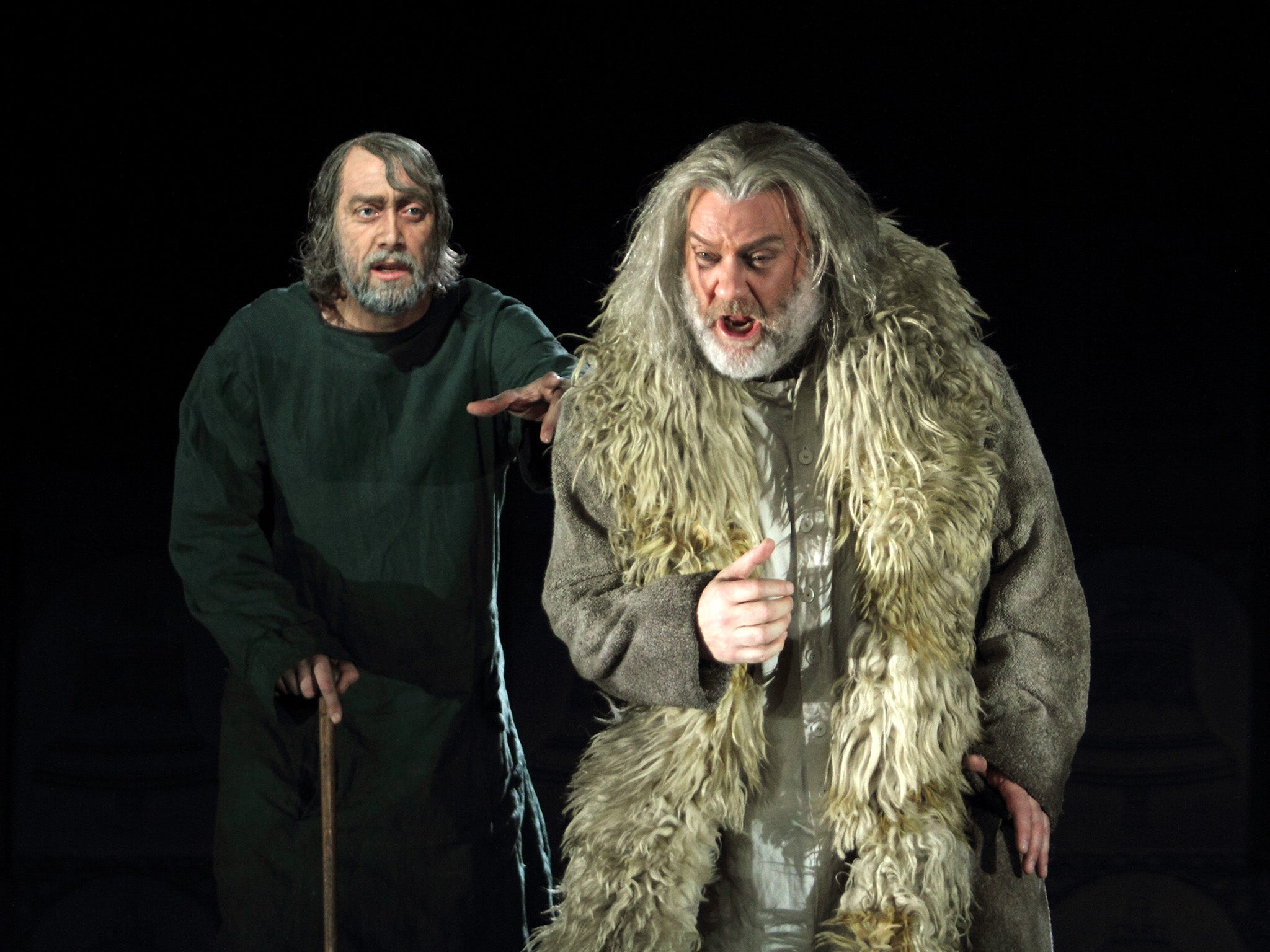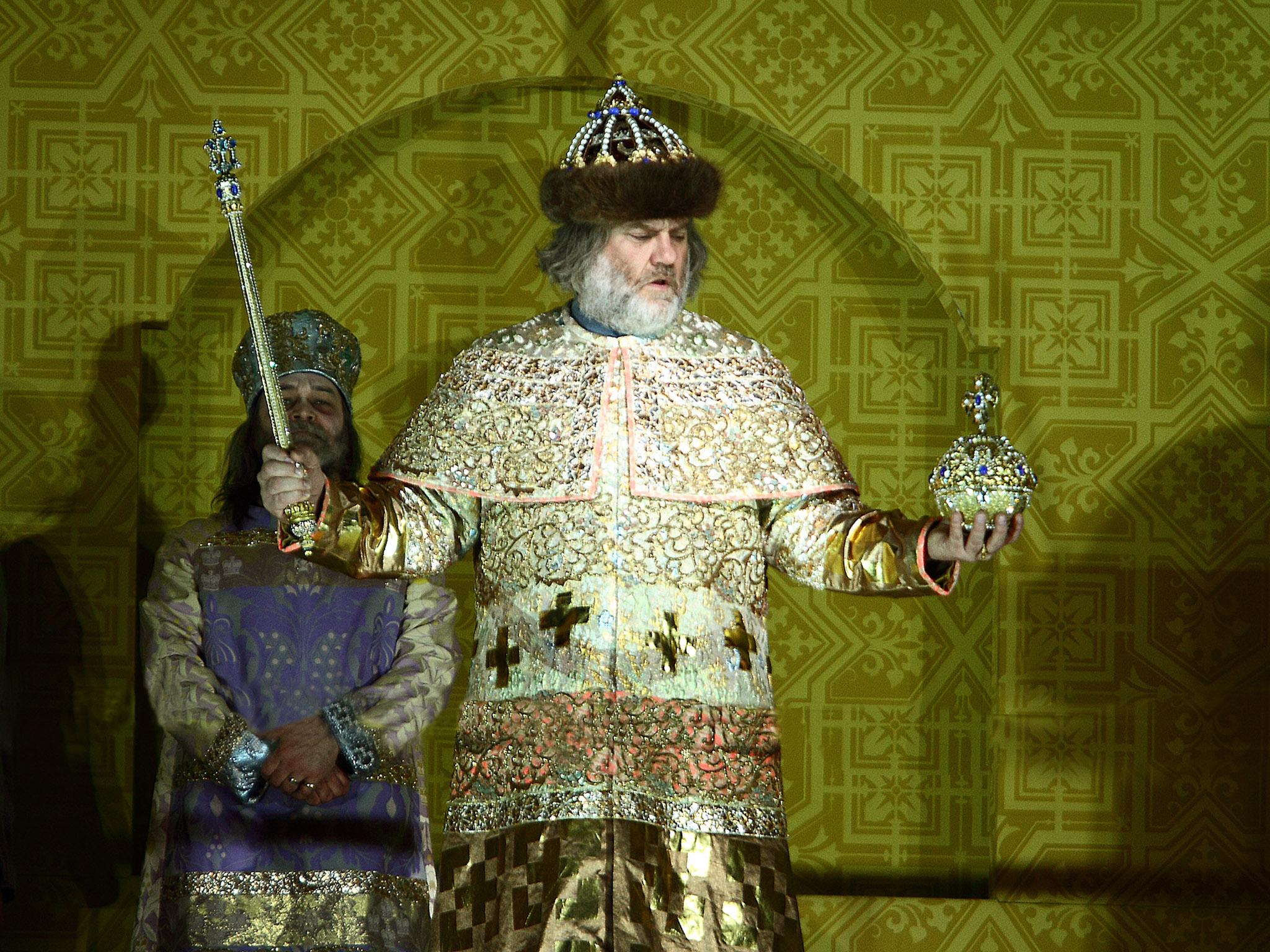Boris Godunov, Royal Opera House, review: Bryn Terfel’s Boris simply doesn’t move us
There’s a hole where the opera’s heart should be

Your support helps us to tell the story
From reproductive rights to climate change to Big Tech, The Independent is on the ground when the story is developing. Whether it's investigating the financials of Elon Musk's pro-Trump PAC or producing our latest documentary, 'The A Word', which shines a light on the American women fighting for reproductive rights, we know how important it is to parse out the facts from the messaging.
At such a critical moment in US history, we need reporters on the ground. Your donation allows us to keep sending journalists to speak to both sides of the story.
The Independent is trusted by Americans across the entire political spectrum. And unlike many other quality news outlets, we choose not to lock Americans out of our reporting and analysis with paywalls. We believe quality journalism should be available to everyone, paid for by those who can afford it.
Your support makes all the difference.With its monolithic, male-dominated plot, Musorgsky’s Boris Godunov represents one of opera’s toughest peaks to climb, but the auguries for Covent Garden’s ascent were good: director Richard Jones and set designer Miriam Buether are a formidable production team, Bryn Terfel has spent a year limbering up for the dramatic and linguistic challenges of the title role, and Antonio Pappano and Kasper Holten have penned a foreword to the programme which indicates that they fully understand what this great work is about.
It is, they write, ‘an opera about power, about what humans are willing to do to get it, and how difficult it can be to handle when you finally obtain it.’ It reminds us that no matter how much we want something, and feel we are entitled to it, ‘our souls will not let us forget the way in which we chose to get it’.
When the front-curtain rises, the gaudily-painted Fifties spinning-top adorning it turns out to be a giant version of the toy with which a small boy in a white suit is playing, while in the cavernous space below him Boris is lost in thought. Three sinister black-clad figures then steal on, cut the boy’s throat, and carry him off like a doll. This seems a neat way of telling the back-story: Boris has murdered young Dmitri, the heir to the throne, and is now plagued by guilt.

The events which follow – lasting 130 minutes without an interval – chronicle the Tsar’s progressive psychological disintegration while a plot to avenge the murder and depose him is led by a novice monk. The libretto, based on a tragedy by Pushkin, encompasses the grand sweep of Russian history, and Musorgsky’s extraordinary achievement is to make that history gripping reality through rolling arias, surging choruses, and dark orchestral glamour.
The opera went through several revisions, but this was the original version, dealing in big, simple effects which are here given a superbly idiomatic rendering under Pappano’s direction. We are in no specific period, but the costuming and direction of the assembled boyars and peasants has a properly Russian feel, as do the transformations of the upper and lower divisions of the stage. There’s a suggested subtext about cycles of oppression.
But the mute charade with which the production begins recurs so many times – and so unchangingly - that it gets tiresome. Much more seriously, Terfel’s Boris simply doesn’t move us, either vocally or dramatically: the best one can say of his performance is that it’s efficient. Yet this role – which was Chaliapin’s calling card – should have a Lear-like grandeur and pathos: there’s a hole where the opera’s heart should be.
But the rest of its anatomy is in fine form. Ain Anger, as the monk Pimen, has wonderfully sympathetic gravitas, while John Tomlinson’s mendicant-monk Varlaam brings a powerful note of comedy, and Andrew Tortoise’s Holy Fool lights up the stage with his sweetly-sung derangements. David Butt Philip’s driven Grigory, John Graham-Hall’s insinuating Shuisky, and Rebecca de Pont Davies’s Innkeeper are all vividly realised.
Join our commenting forum
Join thought-provoking conversations, follow other Independent readers and see their replies
Comments